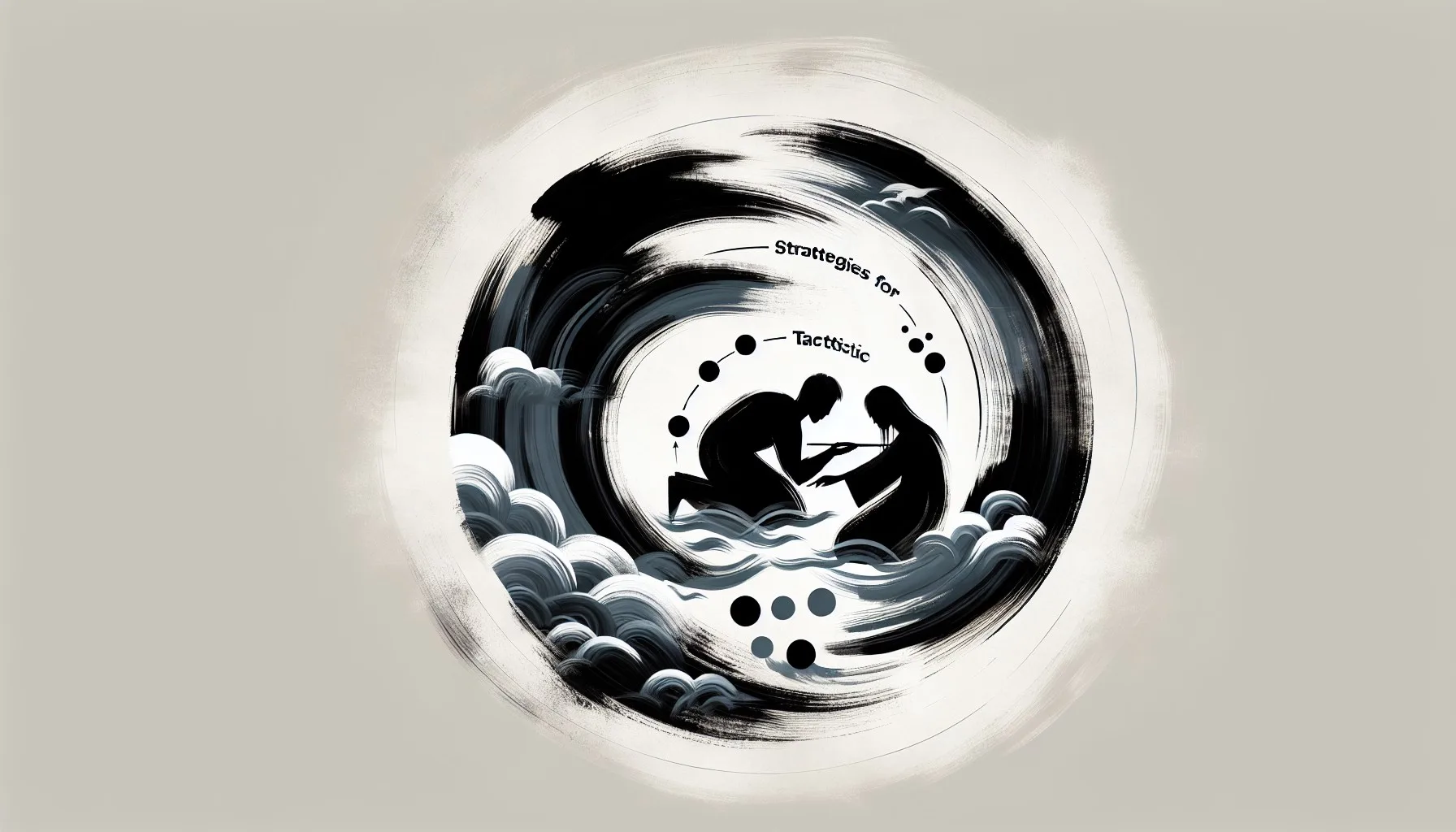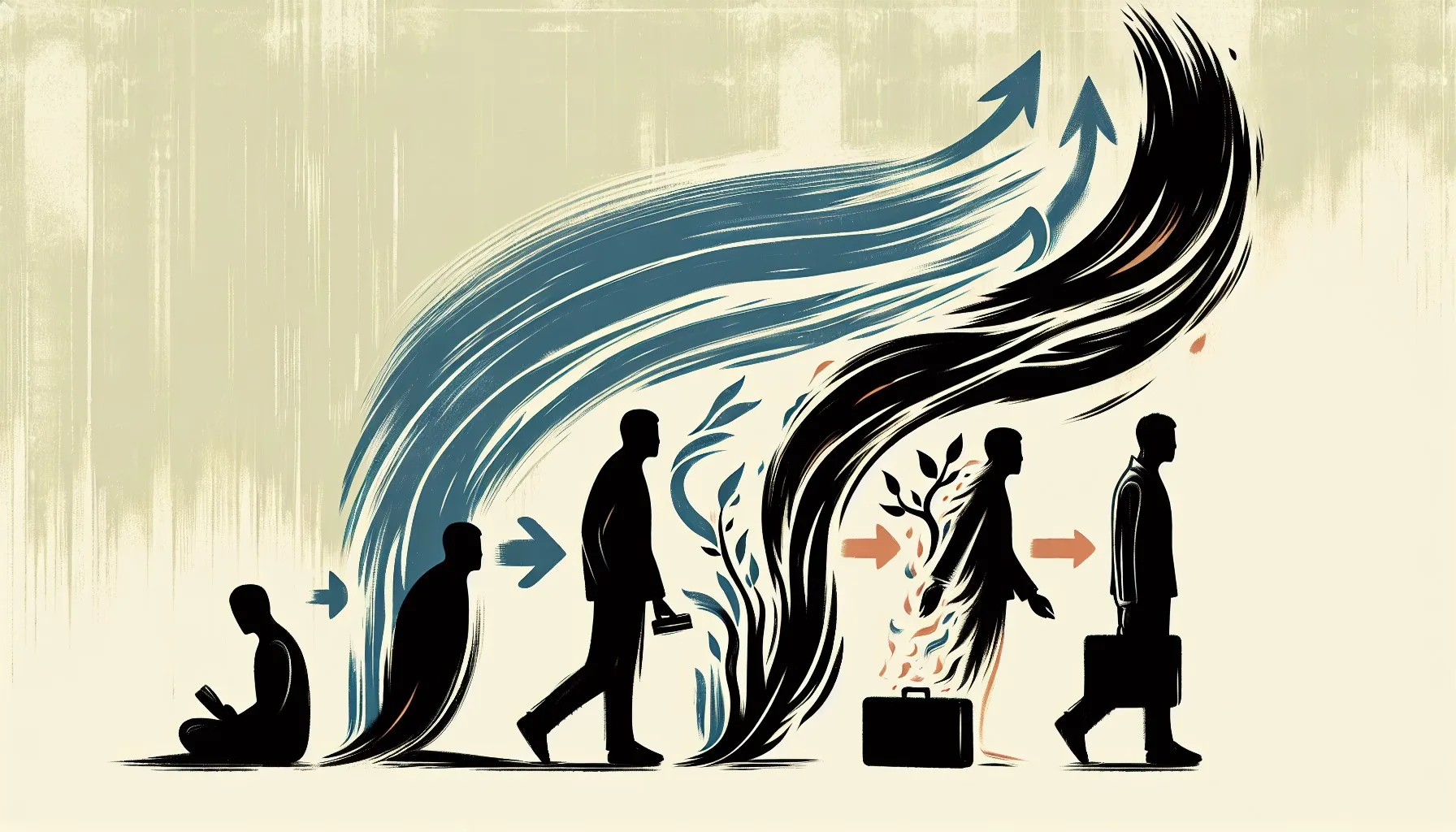Setting Boundaries Post-Breakup
We’ve all been there—and if you’re not in it, you’ve got a friend who’s navigating the messy, often painful dance of setting boundaries after a breakup. It’s like getting a much-needed emotional breather, giving us permission to heal, grow, and maybe even indulge in a little self-care without guilt.
Importance of Boundaries
Boundaries aren’t just buzzwords thrown around by self-help gurus—they’re our solid ground amid the post-breakup chaos. These boundaries don’t just help us with our exes; they help us with ourselves. Knowing where we stand means we’re less likely to be tossed around by our emotions. It’s like securing the guardrails to ensure we stay on our own path to recovery, even when the road gets bumpy. Studies back this up, showing how boundaries boost confidence and make us feel more like the independent legends we truly are (Psych Central).
Taking a step back from our ex gives us the “me-time” we never knew we needed and, quite frankly, deserve. It’s in this space that we can actually hear our own thoughts and figure out what we need to do next. Whether it’s a better job, a new hobby, or just figuring out how to get through a day without eating ice cream for breakfast, boundaries help us get there (Psychology Today).
Boundary Setting Tips
Okay, here’s the scoop on styling our boundary lines just right:
| Tip | Description |
|---|---|
| Cut Off Contact | Like a detox cleanse for your heart—no texting, no stalking on social media. Sometimes, a block button comes to our rescue. |
| Define Interaction Parameters | Got to chat with the ex? Maybe due to kids or shared responsibilities? Set up “office hours” to discuss that stuff without dragging in the baggage. |
| Create Physical Distance | Stay away from the old hangouts for a while. Those spots can trigger memories we don’t need when we’re trying to heal. |
| Communicate Clearly | If you must speak, be upfront about what you need. “Hey, I need some space” might save you lots of mixed signals and drama. |
| Seek Support | Chatting with a friend or therapist can give us the reality checks and pep talks we need to stick to our guns. |
Committing to these boundaries is like digging the foundation for the new life we’re building. They help us steer towards finding closure after a breakup or moving on emotionally after a breakup, pushing us closer to a brighter, more fulfilling chapter. Guards up, heads high, because we’re gearing up for creating a new beginning after breakup!
Healing From Past Trauma
Trying to get back to normal after a breakup’s like hitting the emotional reset button—easier said than done. Especially when the ghosts of relationships past decide to stick around longer than an awkward guest at a party. Getting a grip on how these lingering hurts mess with our ability to move forward is key to mending those broken pieces of our hearts.
Impact of Trauma on Moving On
When life hits us with a punch of hard experiences, trauma can set up camp in our minds, messing with our mood and stressing us out. It’s like a mental movie stuck on repeat, showing the worst moments over and over. That kind of ingrown thinking really puts the brakes on moving on and living life without looking back (Medical News Today). We might find ourselves clinging to memories or the pain of a past fling, like a spider trapped in its own web, slowing down our road to getting better and growing as people.
For anyone who’s been tangled up in toxic or downright hurtful relationships, there’s something called “trauma bonding.” It’s when you feel tied emotionally to someone who’s been harmful. In these situations, breaking the habit might need a bit of outside help to shake those unhealthy attachments (Medical News Today).
Trauma Recovery Techniques
Shaking off past traumas and steppin’ ahead isn’t just a one-size-fits-all deal. There are some solid tactics that might help us along:
| Technique | Description |
|---|---|
| Mindfulness Practices | Diving into mindfulness activities, like meditation, helps us zero in on the here and now, pushing away bad thoughts and taking a kinder look at ourselves (Medical News Today). |
| Safe Expression | Finding a no-judgment zone to vent our feelings and owning up to old mistakes can lighten up the load of remorse we might be dragging around (Medical News Today). |
| Support Systems | Leaning on buddies, family, or therapists gives us the backup and pep talk we need to get through the funk. |
| Personal Reflection | Picking apart the past and understanding how we tick in relationships lets us learn from old script and change the plot for next time (HelpGuide.org). |
| Professional Help | Bringing a pro on board, like a therapist skilled in trauma, can really help carve the path to healing. |
Trying out these methods can clear the way not just for healing past wounds but also for building resilience in future love stories. To explore more on letting go of old relationship baggage and finding closure post-breakup, check out our other stories on how to release past relationship baggage and finding closure after breakup. By diving into these strategies, we’re piecing back together our lives, paving the way for a happier and healthier chapter.
Self-Reflection for Personal Growth
Alright, folks, let’s talk about something we’ve all been through: breakups. Sorting through the remains of a relationship can be rough, but here’s the silver lining — it’s a chance to look inward and come out stronger. Self-reflection isn’t just a buzzword; it’s like taking a magnifying glass to our inner selves, helping us get a grip on our behaviors, thoughts, and emotions. Spoiler alert: it might just lead to some solid personal growth.
Why Self-Reflection is a Game-Changer
Taking time to ponder on our past relationships can unlock all sorts of a-ha moments. Here’s what you might stumble upon:
-
Spotting Patterns: Ever feel stuck in a Groundhog Day with your love life? Well, self-reflection can help us see those repeating patterns—maybe it’s the familiar faces we shouldn’t be dating or the way we fumble at setting boundaries. Identifying these is the first step to tweaking those habits.
-
Boosting Self-Awareness: “It’s not me, it’s them” might sound familiar, but self-reflection flips that script. By owning up to our part in past relationship dramas, we see the domino effect of our choices (Quora wisdom).
-
Owning It: When we take a hard look at our actions, it helps us own up to our roles. It’s all about taking charge of our lives and sowing the seeds for a better romantic future.
-
Growing Empathy: By understanding our emotional shticks, we also start to relate better to others. And that’s how we start writing a new story with ourselves and the people around us.
Stepping Up the Self-Improvement Game
Alright, so we’ve done some reflecting—now what? Here’s how to turn those insights into life hacks:
-
Get Real With Ourselves: Let’s be real — knowing our strengths and weaknesses is like having a roadmap for change. Regular check-ins with ourselves can really banish our blind spots (Quora again).
-
Set Solid Goals: Once we’ve identified where change is needed, it’s time to make goals that stick. For instance, if you’re quick to jump into relationships, maybe pump the brakes a bit until you’re sure it’s right.
-
Learn New Tricks: Need to get better at that heart-to-heart talk? Reflection shows us where we might be lacking, so why not sign up for courses or find resources to plug those gaps?
-
Embrace a Healthier Mindset: Consistent self-reflection nudges us towards a glass-half-full outlook. It’s about letting go of the past hang-ups and being ready for what’s next.
With honest introspection, we’re not just growing; we’re paving the way for healthier connections down the road. Eager to unpack some emotional baggage? Check out how to release past relationship baggage and get ideas for finding closure after breakup. We’ve got those tools to help us heal and move forward.
Coping Strategies After a Breakup
Breaking up is tough, plain and simple. Most of us feel like we’re riding an emotional rollercoaster, with all the dizzying ups and downs. But chin up — there’s light at the end of the tunnel. Whether it’s a quick fix or a long, winding road to recovery, there are ways to navigate through.
Short-Term Coping Techniques
Right after a breakup, our hearts might feel like they’ve been through a meat grinder. These quick strategies can help prevent that sinking feeling from taking over:
| Strategy | Description |
|---|---|
| Find Yourself Again | Dust off that old guitar, hit the hiking trail, or paint like Picasso. Dive into activities that light you up — they remind you who you are at the core, minus the ex. |
| Seek Professional Support | Sometimes we need more than just a pep talk from a friend. A therapist can be like a GPS for muddled feelings, steering us back on course. Healthline |
| Stay Socially Active | Turn to your posse for comfort. Whether it’s a jam-packed concert or a low-key movie night, your social network can lift spirits faster than a caffeine hit. |
| Rearrange Living Situations | Change the setup at home to break the mental link with the past. This could mean moving furniture, replacing old shared stuff, or deciding who keeps the goldfish. |
Long-Term Healing Approaches
When we’re ready to dive deep and work through the heartache, we’ve got steps that dig right into our psyche. Here’s how we can soak up all the healing:
| Strategy | Description |
|---|---|
| Engage in Self-Care | Don the running shoes, meditate like a monk, or pick up that long-forgotten hobby. Whatever works, taking care of Number One — that’s you — is the goal. Healthline |
| Re-establish Trust in Relationships | Take a breather, reflect on the past, and learn the ropes again. It’s all about rediscovering how to trust and walk into future relationships without wearing emotional armor. |
| Process Emotions Fully | Give yourself the green light to feel all the feels. Cry, smile, reminisce. The full spectrum of emotions will make way for stronger, healthier ties down the road. HelpGuide.org |
| Stay Mindful in New Relationships | When Cupid’s arrow strikes again, tread thoughtfully. Use the lessons learned from past scars to create happier, more aware connections. |
Sticking to these strategies can be our lifebuoy amidst the stormy breakup seas. Understanding that healing takes time helps us bloom into a new chapter, ready to embrace healthier relationships ahead. For more heartfelt advice on mending and thriving, you might want to check out how to heal after a breakup or reclaiming self-worth post-breakup.
Grieving Process After a Breakup
So, you’ve found yourself post-breakup, knee-deep in emotional quicksand. Let’s talk about it. Understanding this messy, sometimes chaotic grieving process, can set us on the road (admittedly sometimes bumpy) to feeling a bit more like ourselves and finally closing that chapter.
Normalizing Grief
Grief after a breakup hits hard. It’s like losing not just the person, but the whole blueprint of the life you’d mapped out together. One minute you’re planning trips and snuggling on the couch, the next you’re wondering if you’ll ever stop watching that rom-com you both loved. All those feelings—sadness, anger, relief, giggles at sudden memories—are how our hearts process these changes. Dismissing these emotions might backfire, so it’s okay to embrace the feels.
Grieving isn’t a one-size-fits-all kinda deal. One person’s whirlwind of recovery is someone else’s Netflix marathon. Maybe you’re the tortoise taking its sweet time. That’s okay. Pressuring ourselves to “get over it” can be as pointless as expecting soup to fill a donut craving. Meanwhile, moving our bodies and chatting with friends can take the edge off the heartache blues (source: Healthline).
Processing Intense Emotions
Those gut-punch emotions after a breakup can be fierce; they’re like your very own emotional merry-go-round. Up and down, round and round. It’s a whole vibe. Sadness, confusion, rage—there’s room for all of it. Let’s be honest: Nothing about these feelings is straightforward, and that’s perfectly alright. It helps to have a human safety net of people who’ve been there and get it, whether that’s friends, family, or those brave souls in support groups (shout out to HelpGuide.org for this tip).
Find your emotional release—be it scribbling in a journal, venting to a buddy, or sitting in a circle with like-minded folks processing their own stuff. Use your downtime to rediscover you. Reignite that passion for painting or learn salsa. Growth hides in these personal exploits (Thanks, Medium).
Healing isn’t a sprint, it’s more like trying to sail a canoe through a puddle—slow and steady wins here. Embrace the emotional whirlwind and take the time to mend, ensuring a recovery that’s solid and authentic. Check out our guide on how to heal after a breakup for more heartfelt wisdom. Let’s respect this process and give ourselves the permission to feel, heal, and maybe, just maybe—steal a moment to smile.
Supporting Kids Through Breakups
Breaking up is hard to do, especially when kids are in the mix. It’s a tough time for them, and we need to be there to guide them through the whirlwind of emotions they’re likely feeling.
Kids’ Emotional Needs
When a family splits, kids can feel a rollercoaster of emotions—confusion, sadness, anger. They need their feelings acknowledged and welcomed. Here’s what they might need from us:
| Emotional Need | What It Means |
|---|---|
| Feeling Safe | Kids need to know they’re secure wherever they are. |
| Understanding | They crave honest explanations about what’s happening. |
| Love | They need to hear they’re loved, no matter what else is changing. |
| Routine | Keeping things predictable helps them feel grounded. |
| Support | Trusted adults should be around to listen and help sort feelings. |
Meeting these needs can make it easier for kids to adjust. They need a space where they can talk about what’s going on without being worried about getting in trouble.
Providing Steadiness and Support
Kids need things to stay steady post-split. Sticking to routines and being clear about rules can help them feel like they’re on solid ground. The folks at HelpGuide.org say that a positive mindset can do wonders, too.
Here’s some stuff we can do to help keep things stable:
- Set Clear Rules: Make sure everyone’s on the same page about what’s expected between homes. This is like a safety net for kids (Psych Central).
- Listen Up: Kids should feel they can say what’s on their mind—whether it’s with words, drawings, or even scribbles.
- Call in the Pros if Needed: If a kid seems really down for a long time, maybe see a child psychologist or counselor. They can show the way back to happier days.
- Build a Network: Encourage connections with friends, family, or support groups. Knowing they aren’t the only ones going through this can really help (HelpGuide.org).
By tending to what kids need emotionally and giving them a steady base, we can help them land on their feet. Together, we can all start fresh and better than before. For tips on how to pick up the pieces of your own life, check out reconstructing life after breakup.




